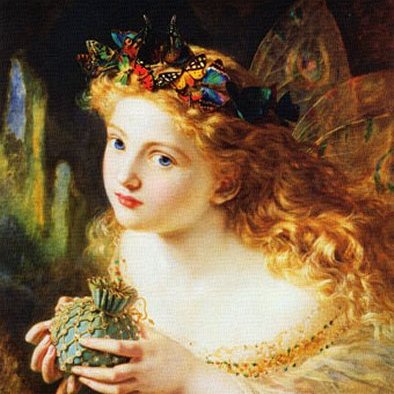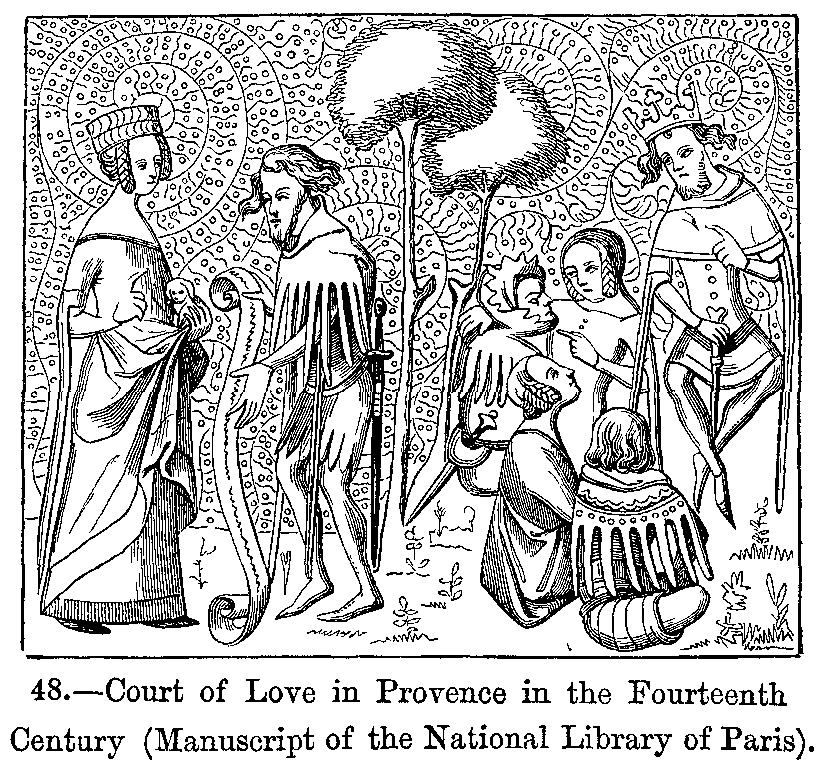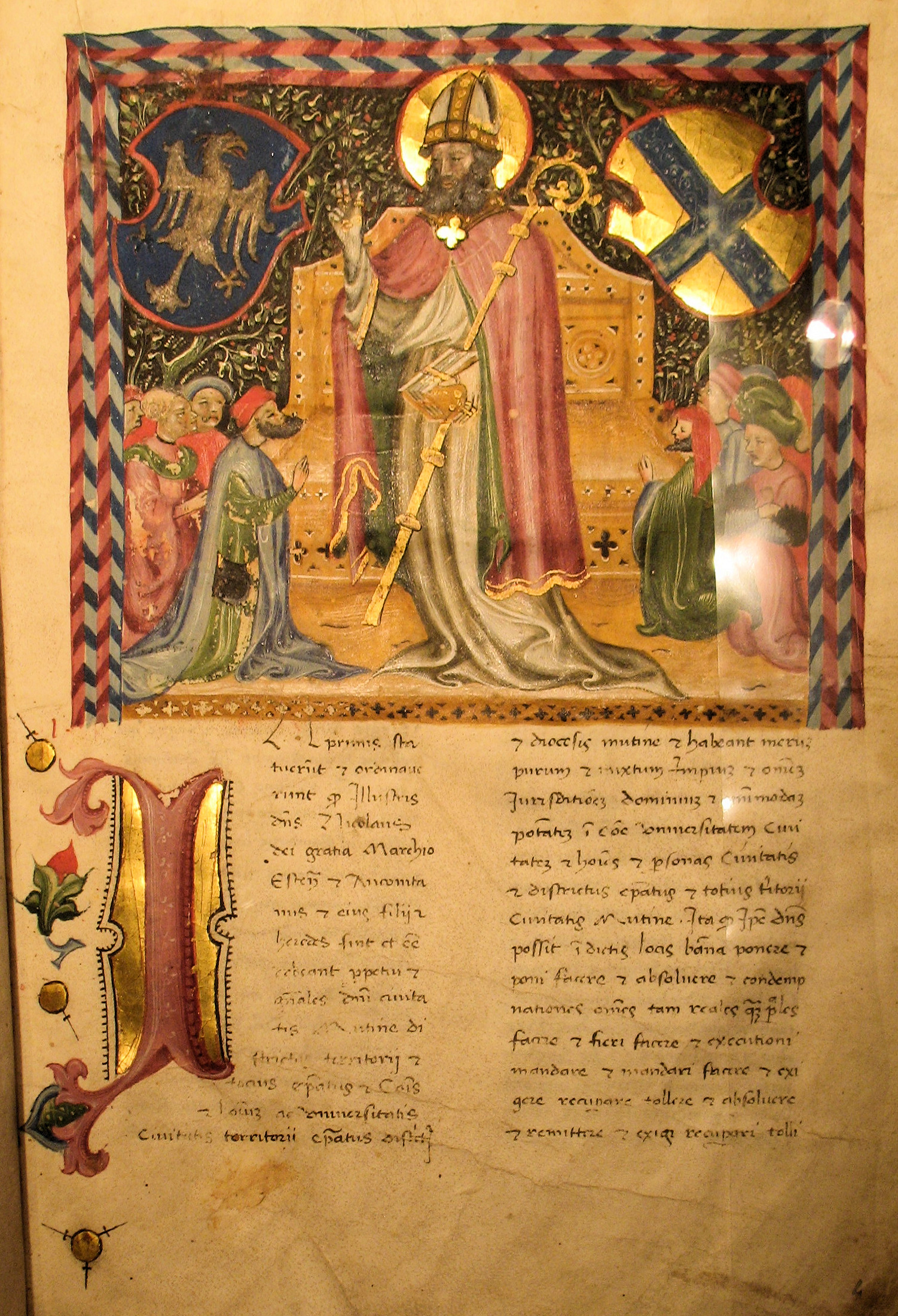|
Equitan
"Equitan" is a Breton lai (a type of narrative poem) written by Marie de France sometime in the 12th century. The poem belongs to what is collectively known as ''The Lais of Marie de France''. Like the other lais in the collection, ''Equitan'' is written in the Anglo-Norman language, a dialect of Old French, in rhyming octosyllabic couplets. In this 320 line poem, the author cautions that those who plot to harm another person may find only their own misfortune. Plot summary Equitan, the king of Nantes, falls in love with the beautiful wife of his seneschal. The king agonises between his feelings for her and his loyalty towards the seneschal. When Equitan declares his sentiments for her, she is incredulous because of the difference in rank between them. He convinces her that his feelings are genuine and he would be willing to be her servant. The couple begins their affair. As the affair progresses, Equitan's advisors pressure him to marry. One day, the seneschal's wife tearfully ... [...More Info...] [...Related Items...] OR: [Wikipedia] [Google] [Baidu] |
The Lais Of Marie De France
The ''lais'' of Marie de France are a series of twelve short narrative Breton lais by the poet Marie de France. They are written in Anglo-Norman and were probably composed in the late 12th century, most likely between 1155-1170. The short, narrative poems generally focus on glorifying the concept of courtly love by the adventures of their main characters. Marie's lais are thought to form the basis for what would eventually become the genre known as the Breton lais. Despite her stature in Anglo-Norman literature and medieval French literature generally, little is known of Marie herself, but it is thought that she was born in France and wrote in England. Literacy characters Marie de France's lais, told in octosyllables or eight-syllable verse, are notable for their celebration of love, individuality of character, and vividness of description, hallmarks of the emerging literature of the times. Five different manuscripts contain one or more of the lais, but only one, Harley 978, a ... [...More Info...] [...Related Items...] OR: [Wikipedia] [Google] [Baidu] |
Marie De France
Marie de France (floruit, fl. 1160–1215) was a poet, likely born in France, who lived in England during the late 12th century. She lived and wrote at an unknown court, but she and her work were almost certainly known at the royal court of King Henry II of England. Virtually nothing is known of her life; both her given name and its geographical specification come from manuscripts containing her works. However, one written description of her work and popularity from her own era still exists. She is considered by scholars to be the first woman known to write francophone verse. Marie de France wrote in Old French, possibly the Anglo-Norman language, Anglo-Norman variety. She was proficient in Latin, as were most authors and scholars of that era, as well as Middle English and possibly Breton language, Breton. She is the author of the ''Lais of Marie de France''. She translated Aesop's Fables from Middle English into Anglo-Norman French and wrote ''Espurgatoire seint Partiz'', ''Leg ... [...More Info...] [...Related Items...] OR: [Wikipedia] [Google] [Baidu] |
Breton Lai
A Breton lai, also known as a narrative lay or simply a lay, is a form of medieval French and English romance literature. Lais are short (typically 600–1000 lines), rhymed tales of love and chivalry, often involving supernatural and fairy-world Celtic motifs. The word "lay" or "lai" is thought to be derived from the Old High German and/or Old Middle German ''leich'', which means play, melody, or song, or as suggested by Jack Zipes in ''The Oxford Companion to Fairy Tales'', the Irish word ''laid'' (song).Zipes, 62 Zipes writes that Arthurian legends may have been brought from Wales, Cornwall and Ireland to Brittany; on the continent the songs were performed in various places by harpists, minstrels, storytellers.Zipes, Jack, ''The Oxford Companion to Fairytales''. Oxford UP. 2009 62-63 Zipes reports the earliest recorded lay is Robert Biker's Lai du Cor, dating to the mid- to late-12th century. The earliest of the Breton lais to survive are probably '' The Lais of Marie de ... [...More Info...] [...Related Items...] OR: [Wikipedia] [Google] [Baidu] |
Anglo-Norman Language
Anglo-Norman (; ), also known as Anglo-Norman French, was a dialect of Old Norman that was used in Kingdom of England, England and, to a lesser extent, other places in Great Britain and Ireland during the Anglo-Normans, Anglo-Norman period. Origin The term "Anglo-Norman" harks back to the time when the language was regarded as being primarily the regional dialect of the Norman settlers. Today the generic term "Anglo-French" is used instead to reflect not only the broader origin of the settlers who came with William the Conqueror, but also the continued influence of Parisian French from the House of Plantagenet, Plantagenet period onwards. According to some linguists, the name Insular French might be more suitable, because "Anglo-Norman" is constantly associated with the notion of a mixed language based on English and Norman. According to some, such a mixed language never existed. Other sources, however, indicate that such a language did exist, and that it was the language desc ... [...More Info...] [...Related Items...] OR: [Wikipedia] [Google] [Baidu] |
Dialect
A dialect is a Variety (linguistics), variety of language spoken by a particular group of people. This may include dominant and standard language, standardized varieties as well as Vernacular language, vernacular, unwritten, or non-standardized varieties, such as those used in developing countries or isolated areas. The non-standard dialects of a language with a writing system will operate at different degrees of distance from the standardized written form. Standard and nonstandard dialects A ''standard dialect'', also known as a "standardized language", is supported by institutions. Such institutional support may include any or all of the following: government recognition or designation; formal presentation in schooling as the "correct" form of a language; informal monitoring of everyday Usage (language), usage; published grammars, dictionaries, and textbooks that set forth a normative spoken and written form; and an extensive formal literature (be it prose, poetry, non-ficti ... [...More Info...] [...Related Items...] OR: [Wikipedia] [Google] [Baidu] |
Old French
Old French (, , ; ) was the language spoken in most of the northern half of France approximately between the late 8th [2-4; we might wonder whether there's a point at which it's appropriate to talk of the beginnings of French, that is, when it was deemed no longer make to think of the varieties spoken in Gaul as Latin. Although a precise date can't be given, there is a general consensus (see Wright 1982, 1991, Lodge 1993) that an awareness of a vernacular, distinct from Latin, emerged at the end of the eighth century.] and mid-14th centuries. Rather than a unified Dialect#Dialect or language, language, Old French was a Dialect cluster, group of Romance languages, Romance dialects, Mutual intelligibility, mutually intelligible yet Dialect continuum, diverse. These dialects came to be collectively known as the , contrasting with the , the emerging Occitano-Romance languages of Occitania, now the south of France. The mid-14th century witnessed the emergence of Middle French, the lang ... [...More Info...] [...Related Items...] OR: [Wikipedia] [Google] [Baidu] |
Seneschal
The word ''seneschal'' () can have several different meanings, all of which reflect certain types of supervising or administering in a historic context. Most commonly, a seneschal was a senior position filled by a court appointment within a royal, ducal, or noble household during the Middle Ages and early Modern period – historically a steward or majordomo of a medieval great house. In a medieval royal household, a seneschal was in charge of domestic arrangements and the administration of servants, which, in the medieval period particularly, meant the seneschal might oversee hundreds of laborers, servants and their associated responsibilities, and have a great deal of power in the community, at a time when much of the local economy was often based on the wealth and responsibilities of such a household. A second meaning is more specific, and concerns the late medieval and early modern nation of France, wherein the seneschal () was also a royal officer in charge of justice a ... [...More Info...] [...Related Items...] OR: [Wikipedia] [Google] [Baidu] |
Anglo-Norman Literature
Anglo-Norman literature is literature composed in the Anglo-Norman language and developed during the period of 1066–1204, as the Duchy of Normandy and the Kingdom of England were united in the Anglo-Norman realm. Introduction The Norman language was introduced to England during the rule of William the Conqueror. Following the Norman Conquest, the Norman language was spoken by England's nobility. Similar to Latin, the Anglo-Norman language (the variety of Norman used in England) was deemed the literary language of England in the 12th century, and it was in use at the court until the 14th century. During the reign of Henry IV, English became the native tongue of the kings of England. The language underwent specific changes which distinguished it from the Old Norman spoken in Normandy, from which specific pronunciation rules are inferred. An Anglo-Norman variety of French continued to exist into the early 15th century, though it was in decline from at least the 1360s when it wa ... [...More Info...] [...Related Items...] OR: [Wikipedia] [Google] [Baidu] |
Courtly Love
Courtly love ( ; ) was a medieval European literary conception of love that emphasized nobility and chivalry. Medieval literature is filled with examples of knights setting out on adventures and performing various deeds or services for ladies because of their "courtly love". This kind of love was originally a literary fiction created for the entertainment of the nobility, but as time passed, these ideas about love spread to popular culture and attracted a larger literate audience. In the High Middle Ages, a "game of love" developed around these ideas as a set of social practices. "Loving nobly" was considered to be an enriching and improving practice. Courtly love began in the ducal and princely courts of Aquitaine, Provence, Champagne, ducal Burgundy and the Norman Kingdom of Sicily at the end of the eleventh century. In essence, courtly love was an experience between erotic desire and spiritual attainment, "a love at once illicit and morally elevating, passionate and disc ... [...More Info...] [...Related Items...] OR: [Wikipedia] [Google] [Baidu] |
Medieval Literature
Medieval literature is a broad subject, encompassing essentially all written works available in Europe and beyond during the Middle Ages (that is, the one thousand years from the fall of the Western Roman Empire ca. AD 500 to the beginning of the Renaissance in the 14th, 15th or 16th century, depending on country). The literature of this time was composed of religious writings as well as secular works. Like modern literature, it is a broad field of study, from the utterly sacred to the exuberantly profane, touching all points in between. Works of literature are often grouped by place of origin, language, and genre. Languages Outside of Europe, medieval literature was written in Geʽez, Ethiopic, Syriac language, Syriac, Coptic language, Coptic, Japanese language, Japanese, Chinese language, Chinese, and Arabic, among many other languages. In Western Europe, Latin was the common language for medieval writing, since Latin was the language of the Roman Catholic Church, which domin ... [...More Info...] [...Related Items...] OR: [Wikipedia] [Google] [Baidu] |
Medieval French Literature
In the history of Europe, the Middle Ages or medieval period lasted approximately from the 5th to the late 15th centuries, similarly to the post-classical period of World history (field), global history. It began with the fall of the Western Roman Empire and transitioned into the Renaissance and the Age of Discovery. The Middle Ages is the middle period of the three traditional divisions of Western history: classical antiquity, the medieval period, and the modern period. The medieval period is itself subdivided into the Early Middle Ages, Early, High Middle Ages, High, and Late Middle Ages. Population decline, counterurbanisation, the collapse of centralised authority, invasions, and mass migrations of tribes, which had begun in late antiquity, continued into the Early Middle Ages. The large-scale movements of the Migration Period, including various Germanic peoples, formed new kingdoms in what remained of the Western Roman Empire. In the 7th century, North Africa and the ... [...More Info...] [...Related Items...] OR: [Wikipedia] [Google] [Baidu] |
French Poems
French may refer to: * Something of, from, or related to France ** French language, which originated in France ** French people, a nation and ethnic group ** French cuisine, cooking traditions and practices Arts and media * The French (band), a British rock band * "French" (episode), a live-action episode of ''The Super Mario Bros. Super Show!'' * ''Française'' (film), a 2008 film * French Stewart (born 1964), American actor Other uses * French (surname), a surname (including a list of people with the name) * French (tunic), a type of military jacket or tunic * French's, an American brand of mustard condiment * French (catheter scale), a unit of measurement * French Defence, a chess opening * French kiss, a type of kiss See also * France (other) * Franch, a surname * French Revolution (other) * French River (other), several rivers and other places * Frenching (other) * Justice French (other) Justice French may refer to: * C. ... [...More Info...] [...Related Items...] OR: [Wikipedia] [Google] [Baidu] |



